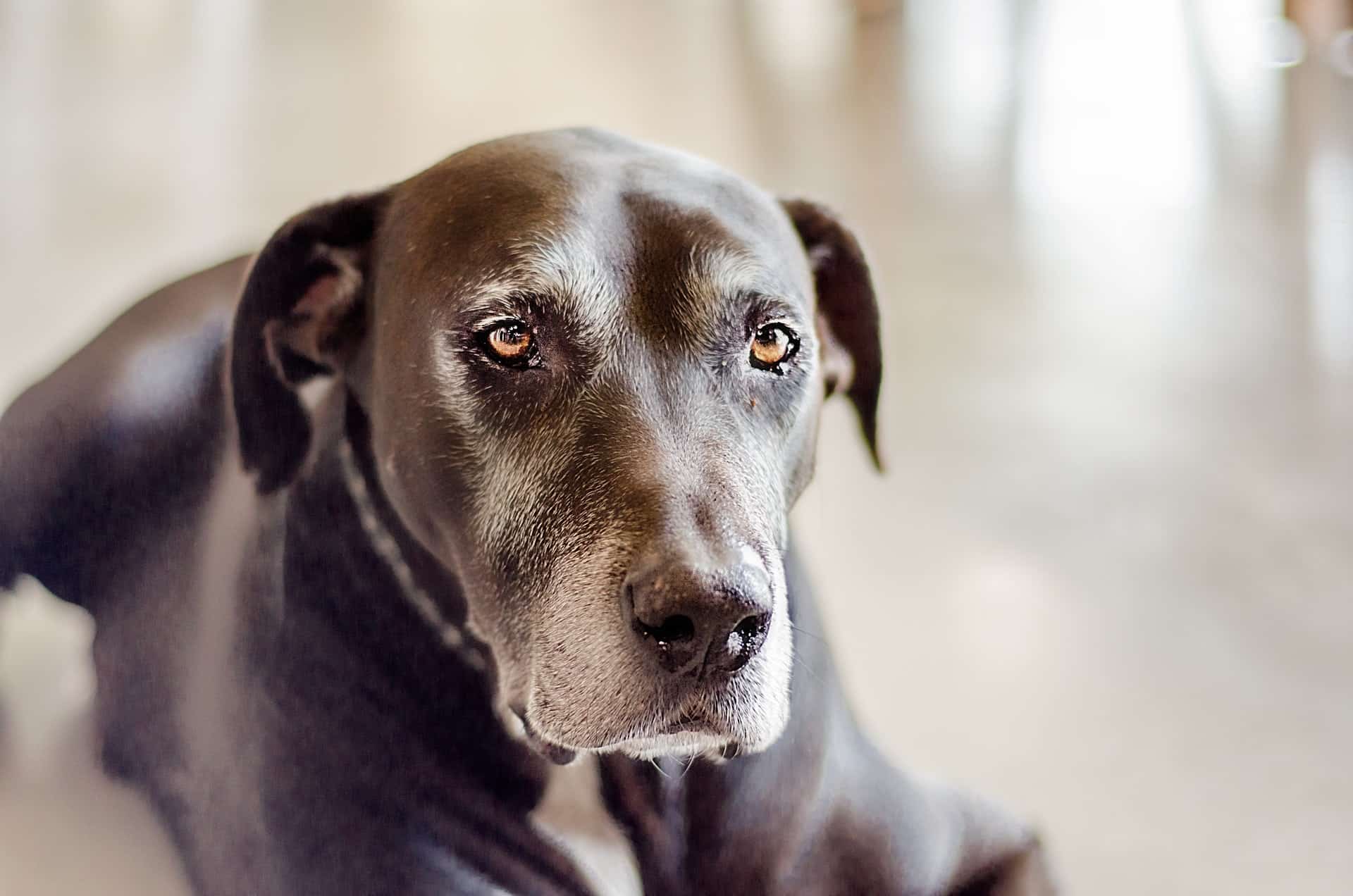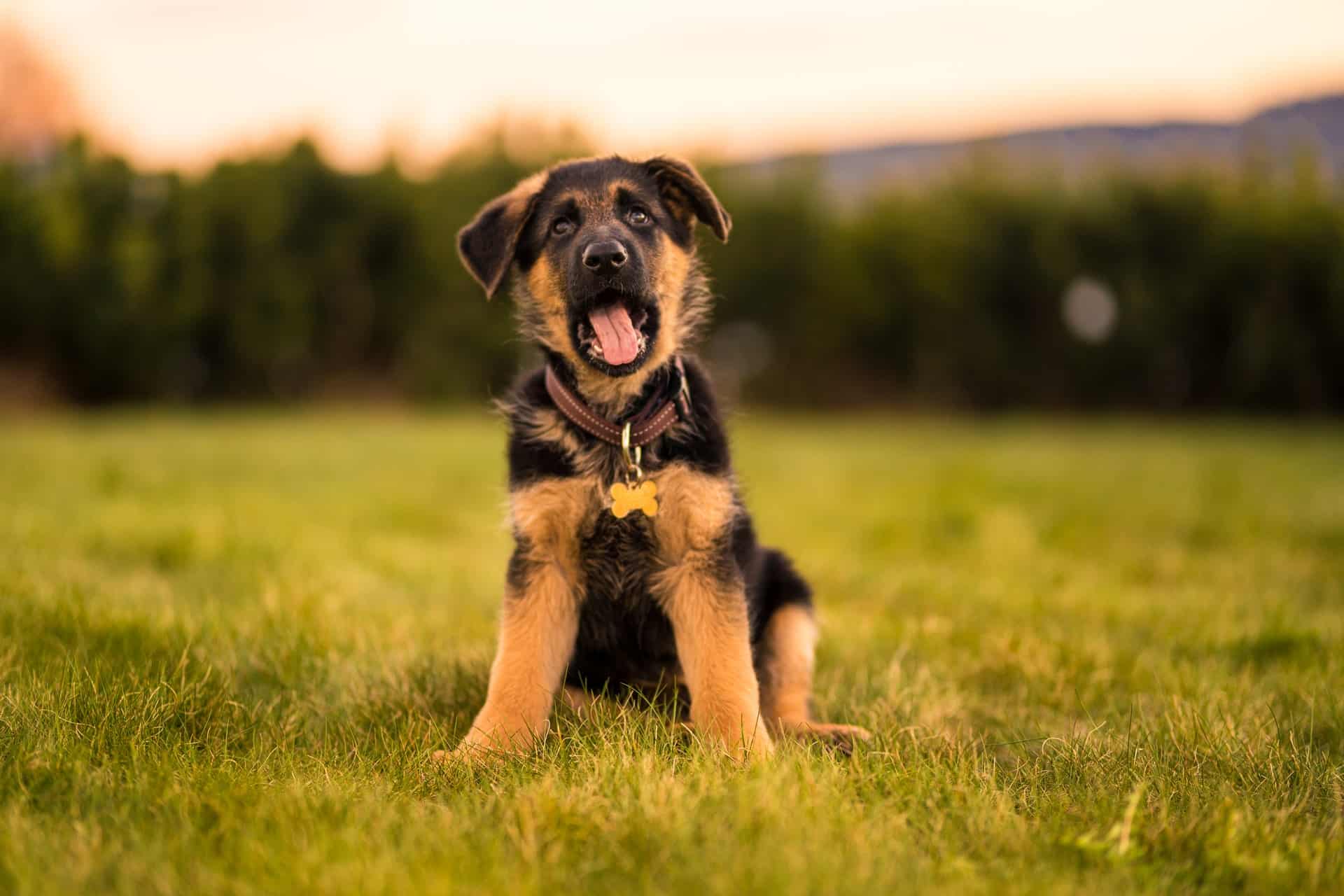Unfortunately for our furry companions, allergies do not choose. Almost any dog can be affected – and there are no rules behind it.
Now, if you have an allergic pup, you know how frustrating it can be trying to stop it from biting or excessively licking and chewing its paws.
Imagine how frustrating it is for your pooch!
I mean, your dog can’t just take some allergy medication or move away from the allergen; it’s not aware of in the first place. So, it’s our job to pay attention to our four-legged friends – and provide relief if possible.
And what about the actual allergens? Well, many kinds of allergens can affect your pup. The list goes from your favorite perfume all the way to dust particles.
But have you ever thought that there might be a dog breed that isn’t allergic to anything? I searched for “what dog is allergy-free?” and got some interesting information.
Keep scrolling to find out more!
What Dog Is Allergy-Free?

I’ll be honest and tell you that there’s no such thing as a hypoallergenic dog breed.
The real truth is that any dog breed can develop allergies throughout its lifetime – although the typical time of onset is between one and two years of age.
A significant number of dogs develop allergies. In fact, according to some estimates, up to 20% of all dogs will develop allergies at some point during their lives.
What’s The Cause Of The Allergic Reaction?

According to experienced veterinarians, various environmental substances – also known as allergens – can cause allergic reactions in dogs, including vegetation, pollen, fungus, particles such as dust, dead skin cells, secondhand smoke, feathers, chemicals, parasites, prescription drugs, and others.
Food is yet another allergen that can trigger allergic reactions in dogs, accounting for 10% of all allergic reactions. Not to mention that specific protein, wheat, preservatives – and many other substances – can cause even more severe allergies issues.
And let me tell you, these allergens are a real pain.
A perfectly healthy dog can quickly become itchy, inflamed, have an upset stomach, irregular bowel movements, or a slew of other problems.
What Are The Symptoms Of An Allergic Reaction In Dogs?

When a dog comes into contact with a particle to which they are sensitive, their immune system goes into overdrive and produces histamines, which cause the allergic reaction we recognize as the following symptoms:
- Excessive scratching
- Non-stop licking
- Itchy, red, inflamed skin
- Itchy, red, and runny eyes
- Feet chewing
- Scratching or rubbing
- Itchy back or base of the tail
- Sneezing
- Diarrhea
- Vomiting
- Hair loss
- Hot spots
- Ear infections
If, for example, a food allergy is suspected, the objective is to determine which allergen(s) are causing the problem.
A veterinarian can conduct a food experiment where the dog is only given a certain protein that it has never encountered before. That can help establish if a food allergy is the root of the problem.
Also, keep in mind that not all adverse reactions to food necessarily involve allergies.
It’s a common misconception that food allergies and food intolerance are the same things. They are not.
According to American Kennel Club, actual food allergies cause an immunological reaction that can manifest as skin problems (hives, face puffiness, and itching), digestive issues (vomiting and/or diarrhea) – or a mix of both.
A severe response culminating in anaphylaxis can develop in rare circumstances, akin to extreme nut allergies in humans.
Now, when individuals claim their pup has a food allergy, they usually mean their dog has a food sensitivity, also referred to as food intolerance.
Food sensitivities, unlike genuine allergies, may not entail an immunological response and instead are a progressive reaction to an irritating component in your dog’s food, such as beef, poultry, eggs, grain, wheat, soybean, or dairy.
Food sensitivities in dogs can cause gastrointestinal symptoms such as vomiting and diarrhea, as well as skin-related symptoms such as itching, poor skin and coat, and frequent ear or foot infections.
Which Dog Breeds Are More Prone To Allergies?

Even though some breeds are more prone to skin allergies – for example, Maltese or Bulldog – and some to food allergies or secondhand smoke, allergies of any kind are generally more common in the breeds listed below:
- American Hairless Terrier
- American Pit Bull Terrier
- Bichon Frise
- Bohemian Terrier
- Boxer
- Brussels Griffon
- Bull Terrier
- Bulldog
- Chinese Crested
- Dalmatian
- English Cocker Spaniel
- German Shepherd
- Golden Retriever
- Irish Setter
- Labrador Retriever
- Lhasa Apso
- Maltese
- Miniature Schnauzer
- Pekingese
- Poodle
- Pug
- Shar-pei
- Shih Tzu
- Wire-Haired Fox Terrier
It’s worth noting that dogs that are “more sensitive” are also more likely to develop allergies along with other health problems.
Types Of Allergies In Dogs
Allergies come in a variety of forms, each with its own set of symptoms. They’re divided into groups based on the type of allergen and the parts of the body they impact.
Contact Allergies
Contact allergies are allergic responses to allergens that manifest as redness, itching, pimples, thicker skin, and hair loss.
Contact allergies may cause your pet to scratch, lick, or chew the afflicted regions. These can develop in conjunction with other diseases, such as allergies of various kinds and can cause ear infections, too.
Dander And Dust Particle Allergies
Allergies to dust and dander manifest as:
- Sneezing
- A stuffy or runny nose
- Red, irritated eyes
In severe instances, the respiratory system is also compromised. Coughing, wheezing, and shortness of breath are all possible symptoms.
These allergens can also cause contact allergies. Dander – tiny flakes of skin – is seen on animals with hair, fur, or feathers. That includes people as well as other dogs.
Food Allergies
Food allergies commonly manifest within two hours of consumption, resulting in hives and other unpleasant skin rashes, persistent gas, compulsive licking, and vomiting.
Anaphylactic shock induced by food allergies is uncommon in dogs, though.
Insect Allergies
Allergies to proteins in insect venom or saliva can induce rashes, nausea, and irritation outside the bite or sting site.
Tongue and throat swelling, breathing problems, and anaphylactic shock are all possible symptoms of a severe response.
Mold And Pollen Allergies
In humans, molds and pollens may produce a clogged or runny nose, itchy eyes, and sneezing. Dogs will experience similar symptoms, too.
Pollen and mold sensitivity will also cause contact allergy symptoms in dogs. Inflammation in the respiratory system can also cause breathing problems and shortness of breath.
These allergens have been shown to cause – and potentially worsen – asthma.
Can You Avoid Dog Allergens?

The million-dollar question is:
Can you prevent your dog from getting an allergy?
It’s a difficult question. If your dog is susceptible to allergies due to inherited genes, the odds are stacked against you when it comes to preventing allergies linked with your dog’s family history.
However, you may reduce the severity of any hereditary environmental allergies by keeping your dog away from the irritating allergen or, in the instance of a food allergy, by providing a veterinarian-approved diet that eliminates the allergen.
If your dog is allergic to something in its environment, keep it away from it as much as you can. If the pup has a grass allergy, keep the dog off it as much as possible or keep it cut very short.
On humid, rainy days, keep your dog indoors as much as possible if it is allergic to mold and mildew.
If such – or comparable – precautions aren’t practicable, the next stage in the procedure is to use measures to reduce the allergen’s impact. Antihistamines, special shampoos, corticosteroids, immunosuppressive medications, and specialized diets can all assist.
What Factors Can Predispose Your Dog To Allergies?

Genetic Influence
Particular breeds, such as Terriers and Retrievers, are more prone to allergies. If one – or both – of your dog’s parents has developed allergies, your pup is more likely to have allergies, as well.
Environmental Components
Environmental variables such as smoking, skin irritants, and even stress may increase the likelihood of an allergy developing – particularly in puppies. With repeated exposure, specific allergens grow more likely to produce a response in dogs.
For example, the sap of many plants, including tulips and hellebore, are common allergens in dogs.
Immunologic Factors
Immunodeficiency diseases can increase the likelihood of developing specific allergies. Autoimmune disorders – which cause the immune system to overreact – can also increase the likelihood of allergy development.
Dogs & Allergies: The Diagnosis
A dog’s tendency to allergies does not always imply that the symptoms mentioned here are always allergy-related. Even dogs with no apparent predisposition can develop them sometimes.
Getting a clear diagnosis from your veterinarian is the best course of action.
There are various tests that can determine whether the symptoms are caused by an allergy – and, if so, which allergen is causing it.
Complete blood tests and a biochemistry profile will likely be requested by the veterinarian and could reveal eosinophils, a kind of white blood cell that indicates an allergic response.
Moreover, skin scrapings from any afflicted regions are frequently obtained for cutaneous cytology, which is the microscopic study of skin cells to search for mites, yeast infections, or indications of illness.
Another way to confirm these suspicions is to inject a tiny quantity of the suspected allergens into the skin.
If the suspected allergy is a food allergy, dietary studies are typically the best way to determine which foods the dog is responding to adversely.
What’s The Best Dog Breed For People With Allergies?

There are several hypoallergenic dog breeds out there that are ideal for dog owners who have allergies.
Your allergies do not have to prevent you from owning a dog – great news, right? Many of the most popular breeds – adorable dogs of all shapes and sizes – are hypoallergenic.
The secret to selecting the right furry friend for allergy sufferers is simple:
Go with non-allergenic dog breeds with low-shedding or non-shedding coats. You want a furry friend who won’t shed as much because pet hairs and dander are the main culprits.
To What Does The Term “Hypoallergenic Dog” Refer?
As I explained earlier, no dog breed is entirely hypoallergenic or allergen-free. Instead, the word “hypoallergenic” refers to breeds less prone to trigger allergies in humans.
Even if you have a hypoallergenic breed, it does not necessarily imply that the dog will not create an allergic response in anyone, be it you or your family member, who has a dog allergy.
It only indicates that the dog is far less likely to produce an allergic reaction than other breeds.
While some dog breeds are frequently regarded as hypoallergenic due to distinctive features – such as low-shedding coats – it all depends on the individual dog and person.
To make matters more complicated, not all dogs generate the same proteins, meaning that some people are allergic to a specific dog rather than a breed.
As a result, a person may respond to one Golden Retriever while being allergy-free to another.
So, in the end, it all comes down to the dog and the person.
Hypoallergenic dog breeds are those that meet the following criteria:
- They don’t shed, which means they have a non-shedding coat that generates less dander.
- Because they don’t have hair, dander is less likely to stick to them.
- Have shorter, single-layered coats.
You could probably detect a pattern based on these characteristics – less pet dander.
So, don’t think that allergies are caused by your dog’s hair or fur; it is a common mistake. Dog allergy is caused by the dander present on a dog’s skin or coat.
As a result, if your dog has a double coat, thick fur, and sheds frequently, you’re more likely to have dander flying around – increasing the risk of an allergic response.
Best Hypoallergenic Dogs For Allergy Sufferers: Which Dog Is Allergy-Free?

If you want to adopt a specific dog breed but have pet allergies, it’s a good idea to consult with a specialist to figure out what kind of dog is allergy-free.
Once you’ve done that, you can start searching for the right breed for mild allergy sufferers.
I’d like to help you in your search. So, I’ve listed some great hypoallergenic dogs suitable for people with allergies below:
- Afghan Hound
- American Hairless Terrier
- Bedlington Terrier
- Bichon Frise
- Chinese Crested
- Coton de Tulear
- Giant Schnauzer
- Irish Water Spaniel
- Kerry Blue Terrier
- Lagotto Romagnolo
- Maltese
- Miniature Schnauzer
- Peruvian Inca Orchid
- Poodle
- Portuguese Water Dog
- Soft Coated Wheaten Terrier
- Spanish Water Dog
- Standard Schnauzer
- Xoloitzcuintli
Not So Allergy-Friendly: Which Dog Breed Isn’t For Allergy Sufferers?

Before we wrap it up, I’d like to add that you should avoid the following breeds if you are prone to pet allergies:
- Basset Hound
- Boston Terrier
- Bulldog
- Doberman Pinscher
- German Shepherd
- Labrador Retriever
- Pekingese
- Pug
- Saint Bernard
- Siberian Husky


